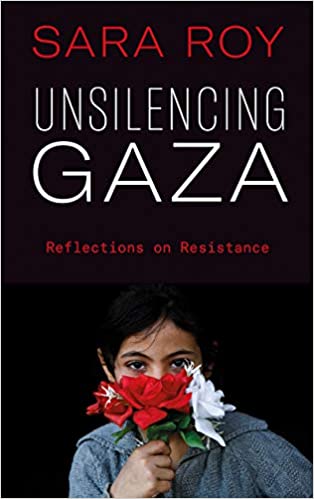Dr Sara Roy du Center for Middle Eastern Studies de l’Université Harvard donnera le prochain Webinaire de l’AURDIP le mardi 2 février à 17h (Heure de Paris). L’exposé sera donné….

Dr Sara Roy du Center for Middle Eastern Studies de l’Université Harvard donnera le prochain Webinaire de l’AURDIP le mardi 2 février à 17h (Heure de Paris). L’exposé sera donné en anglais. Si vous souhaitez suivre ce webinaire sur Zoom, veuillez remplir le formulaire d’inscription ici.
– Titre: La rareté comme forme de contrôle: comment vit Gaza? (Scarcity as a Form of Control: How Does Gaza Live?)
– Résumé (en anglais): The Gaza Strip and West Bank have been under Israeli occupation for nearly 54 years—almost three-quarters of Israel’s entire history. The economic impact of occupation has been ruinous for both areas, especially Gaza, despite limited and now, largely lost achievements. Today, both areas face declining or negative growth, unprecedented levels of unemployment and impoverishment and an unsustainable dependence on (decreasing levels of) international assistance, which can no longer stabilize or even slow decline. The situation in Gaza is particularly acute with its economy in “free fall” according to the World Bank. The slow but steady demise of the Palestinian economy results largely from policies that are intentional and malign.
These policies accomplish Israel’s principal objective—precluding viable Palestinian economic development and with it, the possibility of a Palestinian state. Israel’s policies— applied through an ongoing occupation that extracts Palestinian resources and deprives Palestinians of their political, economic and social rights—aim to extinguish Palestinian political demands and aspirations. Nowhere is this more evident than in Gaza.
Gaza is central to the conflict and to its ultimate resolution. This has always been the case and it will remain so. This is why Israel has worked to marginalize Gaza politically and economically in an attempt to remove it from any form of serious consideration particularly as it regards the resolution of the conflict let alone a future state (no matter what form it may assume). Consequently, Gaza is defined as exceptional, outside legitimate political discourse. Yet, treating Gaza as an exception is simply an extension, albeit more extreme, of policies long used by Israel to separate and isolate Palestinians in the West Bank and in Israel. In this regard Gaza’s status is part of a long and consistent policy continuum of containment and removal. (As such Gaza became the model for the fragmentation of the West Bank into small, disconnected enclaves under constant assault.)
I shall examine Gaza’s imposed and rapid decline over the last decade in particular and the ways in which Israeli policies have further and more dangerously constrained and delimited life and the particularly ruinous impact of these policies politically, economically and socially. Based on interviews with friends and colleagues in Gaza, I also shall describe some of the critical and unprecedented changes that have emerged and how people cope with them. I shall conclude with some reflections on the future.
– Sara roy
Sara Roy est senior research scholar au Center for Middle Eastern Studies de l’Université de Harvard. Très tôt, elle s’est intéressée à la Palestine, et plus particulièrement à la bande de Gaza, où elle a effectué plusieurs séjours. Dès 1995, dans son livre, The Gaza Strip: the Political Economy of De-Development, ouvrage de référence qui a connu plusieurs rééditions, elle introduisit le concept de dé-développement, pour caractériser la manière dont Israël, en contrôlant les frontières, étouffait l’économie de la bande de Gaza pour la maintenir dans un état de sujétion. C’était un tournant dans l’histoire de la pensée économique, qui pour la première fois se proposait pour but, non pas d’augmenter le bien-être de la société, mais de le diminuer. Depuis 1995, la situation ne s’est guère améliorée. Sara a continué à se rendre à Gaza et à publier sur le sujet, en élargissant sa réflexion à toutes les dimensions de la société gazaouïe. Elle a notamment publié en 2011 Hamas and Civil Society in Gaza: Engaging the Islamist Social Sector, et en Juin 2021 paraîtra son prochain livre, Unsilencing Gaza: Reflections on Resistance
– Le webinaire de Dr Sara Roy sera diffusé simultanément par Zoom et en direct sur la page facebook des Universitaires pour la Palestine (https://www.facebook.com/UniversitairesPalestine/).
Si vous souhaitez suivre ce webinaire sur Zoom, veuillez remplir le formulaire d’inscription ici. Le lien de connexion vous sera envoyé la veille par mail à l’adresse indiquée sur ce formulaire.
